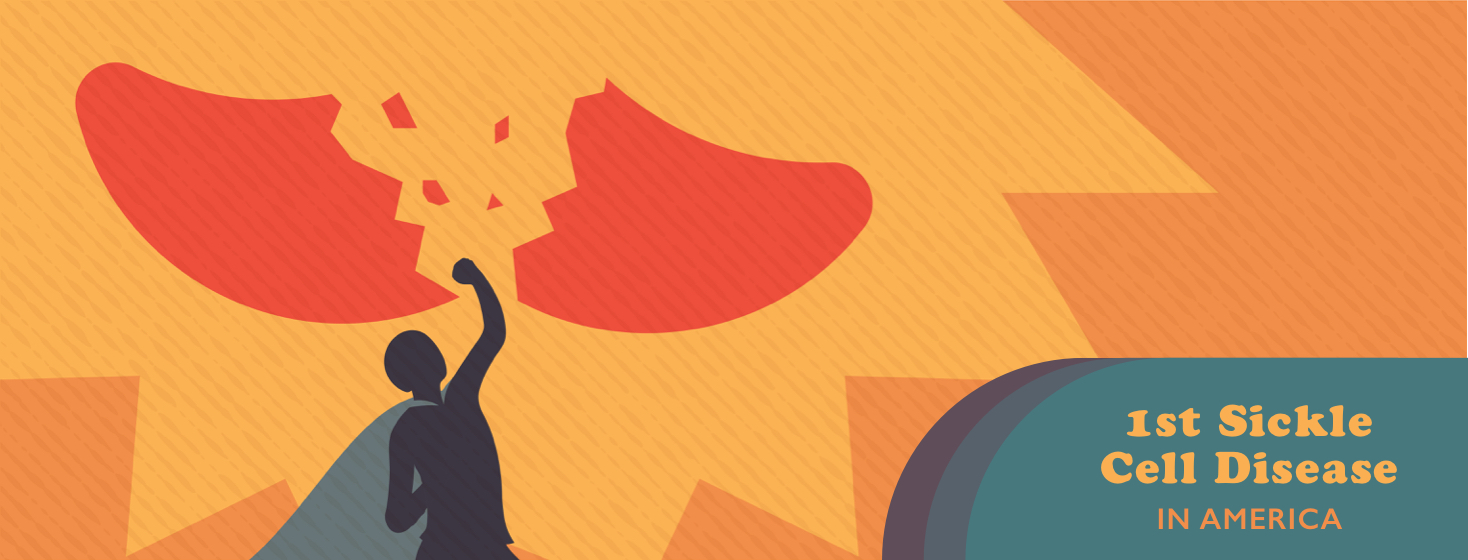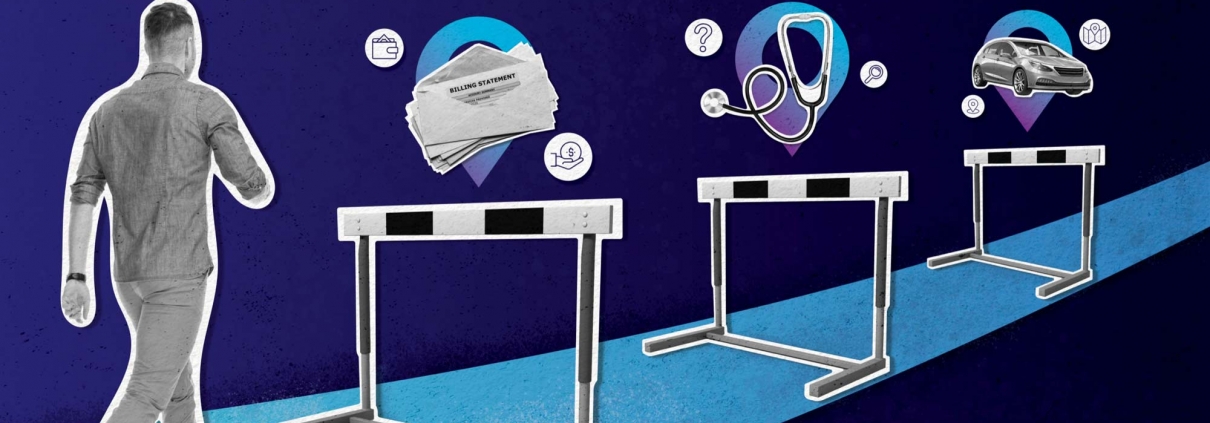Survey Finds People with Sickle Cell Disease Report Vastly Different Experiences with HCPs, Emergency Departments
Three-fourths of respondents said their HCP provides excellent overall care; nearly two-thirds felt judged, stigmatized by emergency department staff
Published July 1st, 2021 | 3 Minute Read
PHILADELPHIA — July 1, 2021 — A new Health Union survey reveals the distinct difference in experience that people with sickle cell disease often face when interacting with their primary healthcare professionals compared to emergency department staff, which can lead to serious delays in needed care and ultimately impact quality of life. The inaugural Sickle Cell Disease In America survey illuminates the perspectives and experiences of people living with sickle cell disease.
These findings also support and fuel content and engagement for the recent launch of Sickle-Cell.com, Health Union’s 31st condition-specific online health community.
Sickle cell disease is a group of inherited red blood cell disorders. According to the Centers for Disease Control and Prevention, people with sickle cell disease have red blood cells that are hard, sticky and C-shaped – as opposed to healthy, round red blood cells.
Sickle cell disease is predominately managed by hematologists. In fact, 92% of Sickle Cell Disease In America respondents said they see a hematologist for their sickle cell disease, while eight in 10 respondents said a hematologist is the primary HCP managing their condition.
Fortunately, respondents rate their relationships with the healthcare professionals who primarily treat and manage their condition overwhelmingly positively. This is the case across a number of interpersonal and condition management factors. Nearly eight in 10 respondents said their HCP is easy to talk to, listens to them and cares about them as a person. And about three-fourths said their HCP clearly explains treatment options and provides excellent overall care.
However, survey findings show that patients’ experiences and relationships with emergency department staff can be less positive. Due to the abnormal shape of the blood cells of people with sickle cell disease, blood flow can get clogged, which can lead to infection or a pain crisis that often requires frequent visits to an emergency department. In fact, 87% of respondents said they had visited an emergency department or urgent care center during the previous year, with a quarter visiting one of these facilities at least five times in that span.
Unfortunately, 65% of respondents who have visited an emergency department said they feel judged or stigmatized by the staff. This is compared to only a third who say they feel judged or stigmatized by the HCPs they typically see for their sickle cell disease.
When asked about typical experiences with emergency department staff, various open-ended responses indicated staff often hadn’t been well-versed in sickle cell disease, didn’t take them seriously, gave them a hard time and treated them like drug seekers. One respondent recalled feeling judged during a hospitalization by a doctor who “stated I was drug seeking because a sickle cell crisis can be managed with [an over-the-counter medication]. His statement is not true!”
As a result of these experiences, people with sickle cell disease might end up avoiding going to the emergency department, making access to care increasingly difficult. In fact, 24% of respondents said they avoid or hesitate visiting the emergency department due to cost, but a larger percentage – 43% – reported avoiding or hesitating going to an emergency department for fear of people judging them.
“Navigating the healthcare system can already be complex, but undergoing such wildly different experiences can make access to reliable, timely, effective care even more difficult for people with sickle cell disease,” said Olivier Chateau, Health Union’s co-founder and CEO. “Online health communities, like Sickle-Cell.com, can go a long way toward providing people living with sickle cell disease the information, connection and support they need.”
Related Articles
Patient Insights: Drivers and Barriers to Specialist Care
For a number of reasons, people don’t always have access to the HCPs most attuned to their needs, which presents hurdles throughout their health journey.
Relationship Advice: What Patients Want HCPs to Know About Satisfaction
Survey results and analysis from Health Union explore the nuances of the HCP-patient relationship and implications for the healthcare industry.
Gender disparities in sexual side effect discussions among healthcare professionals and bladder cancer patients
The results of the study displayed that of the respondents with bladder cancer who underwent surgery (n=312), 24% experienced sexual side effects and discussions regarding potential side effects on sex with an HCP occurred more frequently with male patients compared to female patients (n=309).
The Sickle Cell Disease In America survey, which fielded from Oct. 19, 2020 to Feb. 26, 2021, included responses from 111 people living with sickle cell disease. Additional survey results may be available upon request. More information about living with sickle cell disease can be found on Sickle-Cell.com.
About Health Union
Health Union, with the recent acquisition of WEGO Health, maintains the largest team of experts, patient advocates and healthcare leaders dedicated to social health. The company encourages social interactions that evolve into valuable online health conversations, helping people with chronic conditions find the information, connection, and validation they seek. Health Union creates condition-specific online communities – publishing original, daily content and continuously cultivating social conversation – to support, educate and connect millions of people with challenging, chronic health concerns. The Health Union family of brands includes 34 online health communities, including LungCancer.net, ParkinsonsDisease.net, MultipleSclerosis.net and Migraine.com.
Related Articles
Patient Insights: Drivers and Barriers to Specialist Care
For a number of reasons, people don’t always have access to the HCPs most attuned to their needs, which presents hurdles throughout their health journey.
Relationship Advice: What Patients Want HCPs to Know About Satisfaction
Survey results and analysis from Health Union explore the nuances of the HCP-patient relationship and implications for the healthcare industry.
Gender disparities in sexual side effect discussions among healthcare professionals and bladder cancer patients
The results of the study displayed that of the respondents with bladder cancer who underwent surgery (n=312), 24% experienced sexual side effects and discussions regarding potential side effects on sex with an HCP occurred more frequently with male patients compared to female patients (n=309).



